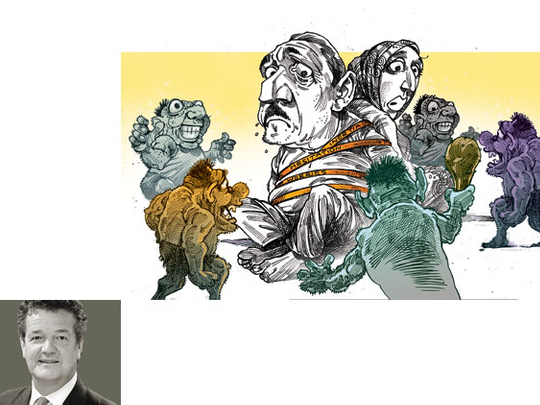
This could be a year of great promise, as change starts to make a real difference to many parts of the Arab world. All over the region, millions of people are suddenly living real politics and taking part in making change happen in front of their eyes. Sometimes this is profoundly uncomfortable, and sometimes very exhilarating, as the old certainties of the former dictatorships give way to a new politics, which in many cases has yet to find its true voice.
But there are deep doubts that any optimism is valid. Things will not go right on their own, and it is all too likely that things will go wrong as savage violence or despairing inertia take over. This is in part because the more open politics of post-Arab Spring have yet to become the accepted norm, and because the endemic resort to violence threatens to overwhelm several significant parts of the Arab World.
So it is important to look for the specific actions that leaders can take to improve the situation in their sphere, and bolster that vital sense of popular optimism that is such a valuable underpinning of political development. Other Arab states want to share Egypt’s experience with Tahrir Square, which built a wonderful sense of being one nation on the move, generated by the weeks of continual articulate and powerful protest. Despite all the changes since then, the spirit of Tahrir Square has empowered Egypt’s people with a new sense of direction.
So as President Mohammad Mursi continues his pact with the previous regime’s survivors in Egypt’s military establishment, he is testing that spirit to the limit as he forces through a new constitution that has failed to meet wider expectations of more inclusivity. In Egypt, any optimistic development should come from the opposition, which will need to offer a much more coherent alternative to the Islamist government and its military allies to be able to attract enough support to shake the president’s confidence that he can force the country in the direction he wants to go.
In Syria, optimism is very unlikely. The opposition and the government are locked in a war that looks set to continue for the whole year and beyond. There is no sense of momentum in looking for a negotiated end to the killing, and the well-meant options put forward by UN Representative Lakhdar Brahimi are treated by the combatants as irrelevant. One of the most interesting possible game-changers was the Saudi-backed suggestion to arm the moderates, so as to give them the authority on the battlefield to attract popular support, and so marginalise the religious extremists, and surviving government forces that will try to take advantage of the impending collapse of Syria. But the Saudis have their own agenda, which would weaken the domestic Syrian appeal of any recipients of Saudi backing.
Iran’s confrontation with US
International doubts over Iran’s nuclear programme will come back to centre stage in the later half of 2013 after the Iranian presidential elections. Two developments could offer a happy end to this sad tale: the first would be if Iran elects a president who wants an end, and is ready to negotiate, unlike Mahmoud Ahmadinejad has revelled in his notoriety and used the confrontation with the US to hide his dismal economic failure. The second would be a new spirit from the US, which must recognise Iran’s right to enrich uranium for peaceful purposes. The real challenge will be for both sides to find a way to have enough transparency so that the UN inspections can satisfy both US suspicions and Iranian national pride.
A wider (and very optimistic) shift across the whole region is the demographic tsunami working up through all countries’ populations as the 60 per cent or more who are under 25 years old take their place in society as thinking and articulate adults. This vast wave of young people has had access to more international thought and ideas than their parents could have dreamt of, and they will not be satisfied with the lazy and arrogant rulers that the previous generation had to endure.
The failure of the liberal and secular (but not necessarily irreligious) to form political parties with mass appeal will continue to let the Islamist parties set the pace in most countries, but both sides in this debate will need to pitch their appeals to an increasingly sophisticated population who know what is possible if their governments get it right, and will be increasingly impatient with failure. Finding successful economic policies, and offering full employment in productive jobs, which are part of the global market, will worry the hard men in the Muslim Brotherhood and Salafist parties, as much as it does the remaining military dictators.
Even the liberals will worry about how to implement such changes, and maybe this common need is one of the most optimistic trends in the region, as all three strands of politics (liberal, religious, and authoritarian) find common ground in the requirement to open up their countries’ economies, and offer their people a secure and prosperous future.








